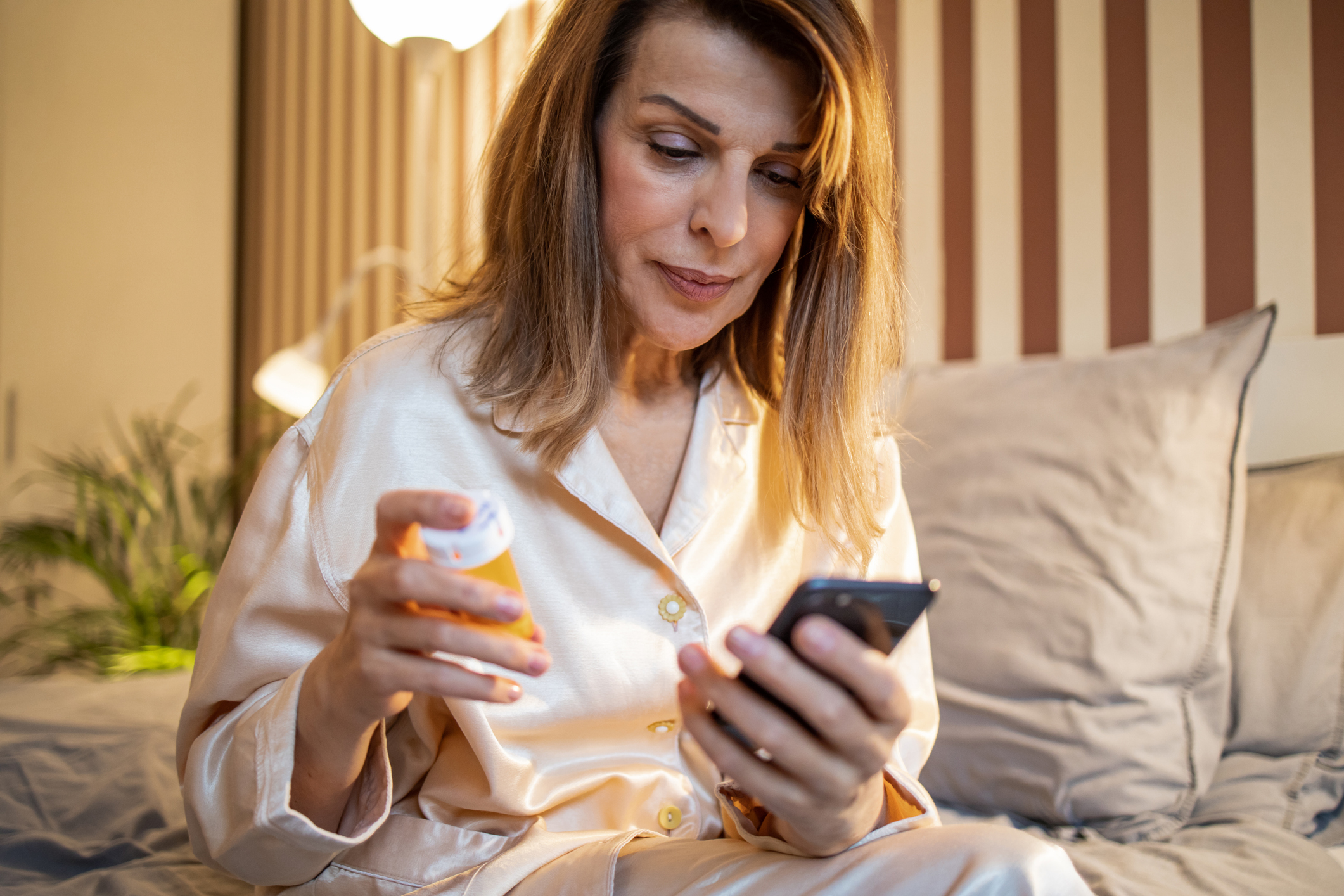Get Easy Health Digest™ in your inbox and don’t miss a thing when you subscribe today. Plus, get the free bonus report, Mother Nature’s Tips, Tricks and Remedies for Cholesterol, Blood Pressure & Blood Sugar as my way of saying welcome to the community!
Don’t trade hot flashes for liver damage

Menopause isn’t for the weak.
In fact, when you consider what women have to go through, from fatigue and bloating to mood changes, night sweats and more, it’s a wonder we get through it at all.
One minute, you’re rolling through your day just fine, and the next, you’re a hot, sweaty puddle!
It’s no wonder, then, that we’re willing to pop a prescription pill just to survive.
But if survival is the goal, one particular menopause medication might be the wrong choice.
Non-hormonal medication linked to liver injury
Veozah (fezolinetant) is a non-hormonal treatment for hot flashes. Unlike hormone replacement therapy (HRT), it does not include estrogen or progesterone and was designed as an option for women with a history of breast cancer.
First approved in 2023, close to 29,000 patients have now picked up prescriptions of the drug in the United States alone.
But the FDA is now warning about the rare occurrence of serious liver injury with use of Veozah.
In September 2024, the FDA issued its first warning that liver problems from the medications were possible. Now, though, they have added a boxed warning to the drug since a woman was found to have blood markers of liver injury after taking the drug for just 40 days.
The good news is that after she stopped taking the medication, her symptoms gradually improved, and her liver levels got back to normal.
The FDA now says that if you’re taking Veozah for hot flashes, you should take blood tests for liver markers every month for the first three months after starting the medication and repeat the test at months six and nine.
If you experience symptoms such as unusual itching, nausea, vomiting, or are more tired than usual, stop taking the medication and talk to your doctor. Other symptoms to watch out for include light-colored stools, dark urine, yellow skin or eyes, swelling of your abdomen, or pain in your upper right side, all of which are signs of liver injury.
Other options for the dreaded hot flashes
For women who don’t feel safe with HRT, the news about Veozah is disappointing. But if you discuss the liver health risk with your doctor and keep up with the suggested liver screenings, it may be a risk you’re willing to take.
But in the long run, it may not be what it is hyped up to be. In the drug trial, some participants experienced headaches and fatigue. And the drug only reduced the frequency and severity of hot flashes.
So, what are your options if you’re not keen on HRT or Veozah?
- Acupuncture can relieve many of the most common (and most annoying) menopause symptoms. In a small group of 70 menopausal women, 80% said that acupuncture relieved their menopause symptoms.
- If needles aren’t your thing, supplement formulations that help relieve hot flashes and night sweats have gotten more sophisticated. Look for those that have been clinically tested. They will cost more, but should be able to give you an idea of how much relief to expect.
- Incorporate soy-based foods like tofu and edamame, as well as flaxseeds, which contain phytoestrogens that may help balance hormone levels.
One important note: Menopause is more than “the change,” signaling a woman’s transformation from her reproductive years. Women also undergo a “cardiovascular change.” Unfortunately, hot flashes and night sweats are associated with worse heart disease risk levels.
In addition to staying on top of your heart health with yearly checkups, a healthy diet and exercise, Dr. Jocelyn Delgado Spicuzza, who specializes in integrative and biomedical physiology, suggests that “Women may need to consume beetroot juice daily — or even more often — to experience all of the potential cardiovascular benefits.”
Her research shows that beetroot juice can be very useful in protecting blood vessel health of mid-life women during this period of accelerating heart disease risk.
Drinking nitrate-rich beetroot juice each day improved blood flow in a group of menopausal and postmenopausal women. Dr. Spicuzza surmised that this level of improved blood-vessel function — if maintained over the postmenopausal years — could significantly reduce the risk of heart disease.
Decades ago, Nobel Prize-winning scientists discovered that nitric oxide (NO), a signaling molecule found in the endothelial cells of artery walls, was a potent vasodilator and an essential regulator of the cardiovascular system. After menopause, women no longer produce estrogen, which helps maintain nitric oxide in the body. Thankfully, beetroot juice helps the body produce NO, with or without estrogen.
Editor’s note: There are perfectly safe and natural ways to decrease your risk of blood clots including the 25-cent vitamin, the nutrient that acts as a natural blood thinner and the powerful herb that helps clear plaque. To discover these and other secrets of long-lived hearts, click here for Hushed Up Natural Heart Cures and Common Misconceptions of Popular Heart Treatments!
Sources:
FDA adds warning about rare occurrence of serious liver injury with use of Veozah (fezolinetant) for hot flashes due to menopause — U.S. Food & Drug Administration
FDA places its most serious warning on menopause drug due to risk of liver injury — CNN














